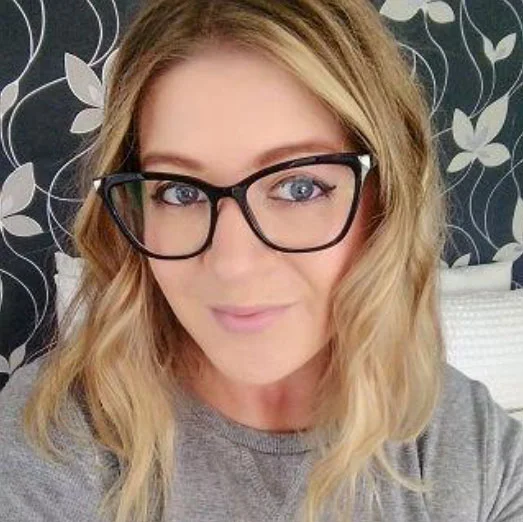For as long as I can remember, why? and how? have always been the most important questions. They were important as a child, as an adolescent making sense of the world, as a student, a more seasoned researcher, and particularly important as a criminogenic rehabilitation practitioner.
Having worked with incarcerated women in New Zealand for the last 5 years, the why’s and how’s of fraudulent offences have always struck me as some of the most intriguing. When considering patterns or themes, these offences appear to be transcendent of demographics and culture typically associated with criminal offending. Many of the women I have worked with are socially and economically advantaged, have either no or minimal criminal history, do not report childhood victimization experiences, have steady employment histories, no recognisable substance abuse issues, and are generally older. Ultimately, they lack common factors featured within most criminogenic pathways.
Some common presentations - the how's
I have often found difficulty in forming genuine therapeutic relationships with a lot of these women, which in all honesty is entirely understandable. If I had my trust battered and broken in the ways they have, I would also be hesitant in trusting all people, let alone strangers. The therapeutic disconnect presents as having roots of a disingenuous nature. Because these women use deception to meet their needs, it often becomes an automatic pattern of behaviour, so much so, that they begin to deceive themselves.
For instance, a lot of these women believe they are in full control of their emotions, when in fact, they over control and intellectualise their emotions, compared to say women who commit violent offences which are often committed due to completely uncontrolled emotions.
The emotional disconnect between these two offences are similar, just at complete opposite ends of the emotional control spectrum.
"Women who commit white-collar crime were more likely to do so due to family needs than to fund high living, unlike their male counterparts."
I also notice that these women are frequently (relatively ineffectively) overly complimentary. This behaviour presents as a form of manipulation. In an attempt to befriend me, with the (likely subconscious) hopes that my positive feelings for them will translate into avoiding challenging their unhelpful behaviours. When this fails, and challenges occur, they are incredibly sensitive to feedback, particularly around their defence mechanisms.
These presentations are often linked to invalidation throughout childhood and having parental figures who would be dishonest with them directly, or witnessing these figures exhibiting dishonest behaviour with others to get what they want. As such, although minimal direct violence or victimization in childhood is reported, these are some of the learned behaviours (i.e. Being dishonest gets my needs met) are continued through to adulthood.
Interesting factors behind the behaviour - the why's
From a (relatively quick, let’s be honest here) review of the literature, little seems to be known about the extent and nature of the involvement of women involved in fraudulent offenses. However, fraud is a significant component of female offending.
Studies within the extant literature predominantly suggest that women who commit white-collar crime were more likely to do so due to family needs than to fund high living, unlike their male counterparts. This research mirrors some of my own clinical observations of women serving sentences in New Zealand, and what I find to be the most interesting of motivational functions.
By and large, this type of offending is reported to me as the alleviation of financial strain and feeling pressured to please and provide for others. It is rarely, how can I benefit from this or what might the consequences be for me, but almost always, how will the people I love benefit from this.
I am by no means suggesting that this is the case for all women who commit fraud. Of course, there are other motivations behind the engagement of these offences, including thrill, curiosity, greed, financing gambling addictions, and anti-social attitudes e.g. entitlement.
What I also often hear is how social pressure to be successful and gain financial freedom is inherently linked to a sense of control and independence. Gaining a sense of power, control, and independence through fraudulent offences appears to be especially present for women who have experienced a fundamental lack of these through abusive intimate partner relationships.
The concept of self-worth feels particularly pertinent when considering the reported feelings of pressure to provide for others. For so many of these women, their role as a mother or other form of provider is a fundamental part of their identity. I often wonder what this means for single mothers who struggle trying to balance providing both the domestic role and the role of the primary breadwinner.
It would be worthy to explore these somewhat unique offending pathways and investigate links between inherent self-worth (met through providing and/or other motivations) and the broader social pressures and expectations of the modern woman. Particularly, as changing workplace demographics reflect a rising number of women in the traditionally male dominated field of business, and research indicates a powerful connection between selfworth and net worth.
Understanding specific types of offending pathways can further inform programme delivery and determine additional areas of service that may be beneficial, such as education and employment programmes in New Zealand.

Amy Lawrence, Clinician
Psychology Ph.D. candidate at the University of Auckland and clinician in the NZ Public Criminal Justice Sector
Amy has extensive professional experience within Criminal Justice and Health sectors in both Australia and New Zealand. Alongside her full-time clinical work, she is currently completing a Ph.D.in sexual violence prevention, understanding, and challenging some of the most stigmatising attitudes within New Zealand.
From women in fraud to women working in law firms. A leading NZ law firm describes the role of three key female leaders in ‘ Women in Business: Tompkins Wake.




